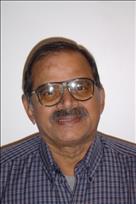 Deepavali, the Festival of Lights, lent charm and dignity across India to welcome a hefty package of economic reforms announced by Prime Minister Narendra Modi to pep up business and invite investment.
Deepavali, the Festival of Lights, lent charm and dignity across India to welcome a hefty package of economic reforms announced by Prime Minister Narendra Modi to pep up business and invite investment.
Coupled with it, he crushed the Congress Party in Mahar ashtra and Haryana to win the State assembly elections last week.
He could not have asked for a better Diwali gift.
Just five months in office after he won a facile and convincing five-year Parliamentary mandate in the General Elections, Mr Modi (who was earlier Chief Minister of Gujarat) lost no time to move with the changing times to build a comprehensive and efficient profile for India.
Good Governance
With an eye on clean administration, he has started to streamline the working of the Central Government offices steeped in slack and slump. “No corruption, no bribes,” he said and chided a ministerial colleague when he presented gifts to journalists covering his ministry.
He has harnessed people of all shades, from politicians and film actors to cricketers to help keep the environment clean. He wielded a broom and cleaned the streets to set an example to the common Indian.
The monsoon rains dusted government buildings. Presentation and cleanliness are the order of the day. Various ministries are fine-tuned to deliver results.
Overnight, the sleepy, lethargic administration in Central Government offices gave way to brisk work at stipulated hours. Latecomers were taken to task. Senior officers were told that they can visit golf clubs outside their office hours.
These are small yet powerful reminders by none other than the Prime Minister.
New Delhi has begun to sparkle. India has begun to click.
There is a new awakening, a new beginning to support Mr Modi’s effort to build smart cities across India. Rural India is looking at a new healthy environment. Mr Modi has vowed to bring a smile on the face of the poorest of the poor and slowly uplift their social strata.
Make in India
He has reached out to Japan, China and US to help in his efforts. His ‘Make in India’ plan to foster greater employment at home is gaining global attention.
A high tech-savvy, Mr Modi communicates well with people in India and abroad and never skips an occasion to give immediate comfort and care to those in distress. The recent floods in Jammu and Kashmir and the devastating cyclone Hudhud in Andhra Pradesh are good examples to illustrate his care for people.
He spent Diwali with military troops on the icy heights of Siachen Glacier in the Himalayas guarding the international border with China.
Economists have argued for decades that India’s potential will take shape if the Government cuts subsidies, eases suffocating regulatory and rigid labour laws and tackles rules governing industrial land acquisition.
During his tenure as Finance Minister (under P V Narasimha Rao), Dr Manmohan Singh tried to recast some of the anachronistic laws. He tried again during his ten-year tenure as Prime Minister (2004 to 2014) but was buried with his highly intellectual fiscal theories and policies and the constant suicidal pressures of his own party and the coalition partners in the government. Although known as a ‘clean man,’ he was drowned in his Party’s corruption charges.
Refreshing Reforms
The Modi government plans to scrap more than 300 outdated laws, many of which were from the British colonial rule, contributing to a notoriously cumbersome legal system.
The week leading to Diwali, Mr Modi announced a significant package of reforms to kick-start the economy. The government scrapped subsidies to fuel, made labour rules simpler and pledged to open coal mines to private players.
These measures, designed to cut red tape and attract foreign investors, immediately lifted the stock markets by 3%.
According to reports, the government plans to raise the Foreign Direct Investment (FDI) limit in the insurance and pension sectors, have separate labour law for small factories and a uniform Goods and Services Tax (GST) for the whole country.
In all the new measures, the interests of the large labour force will be protected.
Higher growth
In a report on its latest research, Morgan Stanley, the global investment bank, said that policy reforms “are much needed to ensure that India transitions out from stagnation to an environment of higher growth and lower inflation.”
It said that the decisive Parliamentary Election 2014 indicated that the new Bharatiya Janata Party (BJP) government will be able to implement reforms at a rate faster than estimated earlier.
Mr Modi has said that like any Gujarati, money is in his blood and trade is his passion.
New Zealand Prime Minister John Key, fresh from recent elections for a third term, may well find a good friend in Mr Modi.
Meanwhile in Mumbai, the BJP is likely to conclude an agreement with the Shiv Sena, a regional party, to form a government after lengthy hiccups, acrimonious charges and tough bargaining. Shiv Sena was the elder partner when the two parties had formed a government from 1995 to 1999.
In the recent state assembly election, BJP picked up 123 seats in the 288-member assembly while the Shiv Sena was a distant second with 63 seats. The BJP will play the big brother role now.
NVR Swami is a retired veteran journalist. He has worked in India, Africa and Europe and has travelled extensively to cover world events. He now lives in Auckland.






